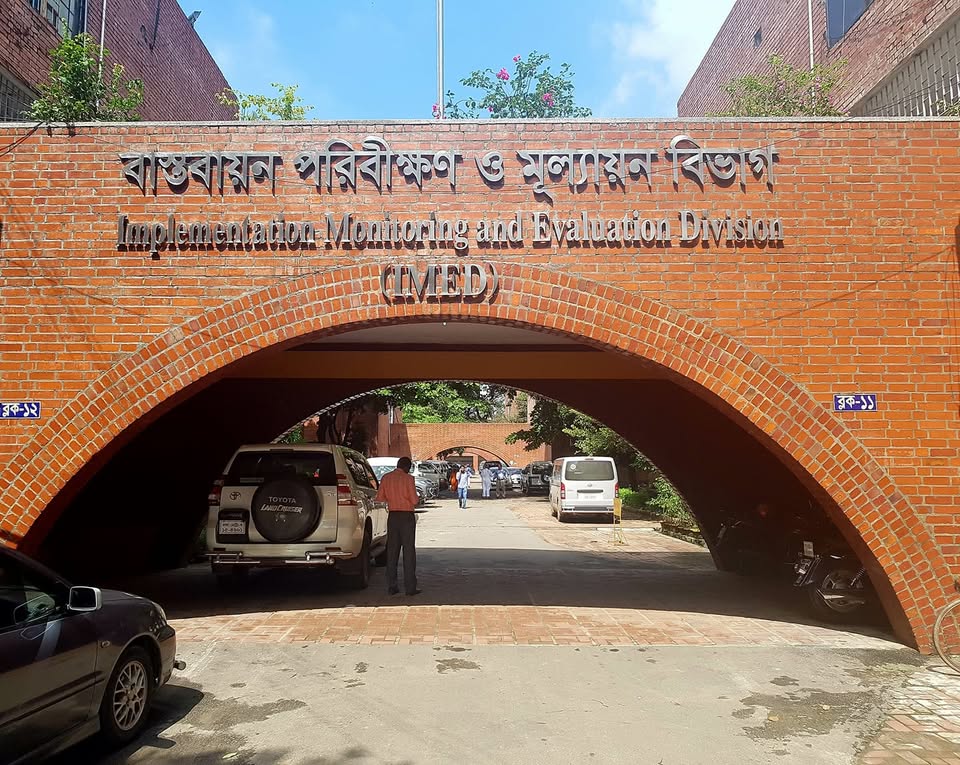Poor coordination key barrier for delays in large infrastructure projects

Published :
Updated :

The Implementation Monitoring and Evaluation Division (IMED) has identified inadequate coordination in land acquisition and utility relocation as a key constraint on the timely implementation of large infrastructure projects.
To mitigate such delays, the planning ministry's evaluation division has recommended undertaking and completing separate projects for land acquisition and utility shifting prior to initiating major infrastructure schemes.
The recommendation came from a paper of the IMED presented at a session titled "Contemporary Issues in Project Planning and Implementation in Bangladesh: A Policymaking Perspective," which was arranged by the Cabinet Division on Tuesday.
While presenting the paper, Md Kamal Uddin, secretary of the IMED, pointed out that the lack of full-time project directors (PDs), the practice of assigning multiple projects to a single official, the appointment of inexperienced project directors, and frequent transfers of project directors remain major impediments to effective implementation.
To address these challenges, he called for strict enforcement of the existing rules on project director appointments for development schemes.
He also proposed creating a dedicated "PD pool" of qualified and experienced officials and providing them with specialised training in finance, procurement, and project management.
The event was attended by all advisers of the interim government, special assistants to the chief adviser, secretaries of all ministries, and senior officials from the planning ministry.
It was jointly moderated by Planning Adviser Dr Wahiduddin Mahmud and Finance Adviser Dr Salehuddin Ahmed.
A total of seven papers covering foreign financing, debt strategy, project planning and approval, public procurement challenges, and the role of the CCGP and case studies in project implementation and foreign-financed projects were placed at the event.
In his presentation, the IMED secretary highlighted 25 key challenges across the annual development programme (ADP) - 10 at the project formulation stage, 10 during implementation, and five in the post-implementation phase - and underscored the obstacles that affect both project execution and the sustainability of their benefits.
He flagged key issues at the project formulation stage, including inadequate feasibility studies, lack of stakeholder consultations, incomplete designs leading to implementation variations, poor cost estimation, and overreliance on consultants.
Apart from issues with project directors and land acquisition, the IMED highlighted key implementation challenges, including inaction on its inspection recommendations, delayed project extension proposals, poor coordination between implementing and recipient agencies, and slow approvals from development partners for foreign-funded projects - all of which hamper timely execution.
At the post-implementation stage, the IMED noted delays in submitting project completion reports, poor upkeep of infrastructure and equipment from completed projects, insufficient or late recruitment of dedicated staff, and non-compliance with government rules on depositing vehicles into the transport pool.
Economist Dr Mustafa K Mujeri, also a former executive director of Bangladesh Institute of Development Studies (BIDS), said these project implementation problems have persisted in Bangladesh for decades.
"Although each issue has been identified and recommendations made, no ministry or division acts on those," he said, adding that the IMED lacks the authority to enforce compliance.
If agencies ignore them, the recommendations serve little purpose, he added.
jahid.rn@gmail.com


 For all latest news, follow The Financial Express Google News channel.
For all latest news, follow The Financial Express Google News channel.